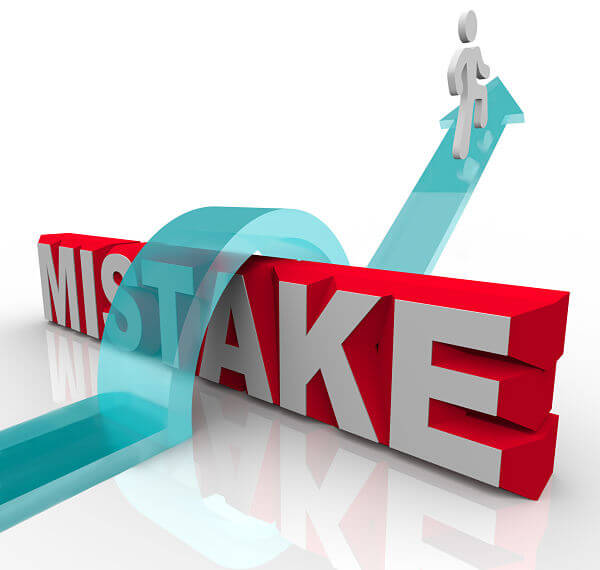Trading Errors and How to Avoid Them
The ability to make rational decisions is critical in all aspects of your trading life. Once you have identified and eliminated the five most common errors, you can expect accelerated success and professional growth.

Let’s identify the five common trading errors people make when making irrational trade decisions.
1. Trying too hard to be right
Although we all want to be right, ironically, the worst way to be correct is to desperately need it. When you are too needy, it repels logical thought. Your brain senses your lack of confidence and as a result, it starts using negative “internal talk.”
Thankfully there is a solution. The more confidence you build in your trading acumen, the more rational your decisions become, and the less trading errors you make.
Your sub-conscious mind reflects back what you feel about yourself. So, make a point of building your self-confidence and notice how pleased your rational conscious mind will be with your trading activities.
2. Pretending to be something you are not
In your effort to avoid trading errors, succeed, and feel good at trading, it can be tempting to suddenly reinvent your self-image in the form of a trading expert or some false perception of a trading guru. This tactic does not work.
Very often all that happens is that you feel tense and under pressure to play the role you have invented, while your real self is unable to trust you. Invariably you fail to make good decisions and even risk making foolish ones.
It is far better to be natural and let your real personality find its way. When you do so with confidence, you will be more likely to find your unique trading personality and method.
Think about it.
It is much easier to like and respect yourself when you are genuine and honest about your strengths and weaknesses. In fact, being true to yourself is one of the most powerful qualities you can develop as a trader.
3. Pre-judging a situation
We do it all the time. We take a quick glance at a chart and immediately decide on a course of action before taking the time to rationally evaluate the situation.
Call it divining the future if you like, but making such assumptions and pre-judgments can severely affect how successful you will be in your trading profession.
Such an attitude can stop you from seeing the big picture trends, cause you to get out of moves too early, and make it difficult to sustain profitable success.
Instead of making this common trading errors, a more practical approach is to allow each potential set up an opportunity to “speak” before you decide what the course of action should be. Make sure to switch off your assumptions for a moment and look at what is being presented to you.
4. Trading too much, instead of stepping aside
Sometimes because of nerves, it can be tempting to keep trading to ensure there are no awkward silences. The trouble with this habit is that eventually, you stop watching what your charts are telling you to obsess on what to do next.
Let your tools work for you. Give them an opportunity to guide the trade. Watch carefully to what the market is showing you and then implement your trading strategy based on that unique input.
When you do this, entering a position is a lot less stressful — managing a move becomes a joint effort between you and your trading tools.
5. Losing control of your trade
When you first evaluate a setup, it is reasonable to expect a little delay on your thought process until you come up with a course of action.
However, you should still be actively in control. Becoming passive during these pauses can lead to analysis paralysis. If you adopt this behavior, you are giving up control of the trade.
Take back control. You can do this by asking yourself a predetermined set of qualification questions to move your decision process along. Doing this will make you more relaxed, and you will notice how much control you have.
And, if all else fails, bear in mind it is YOUR choice whether to take a trade or not. The world will not come to an end if you step aside.